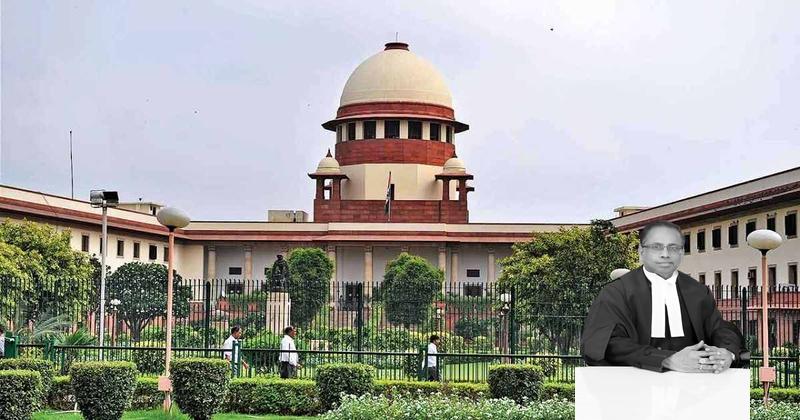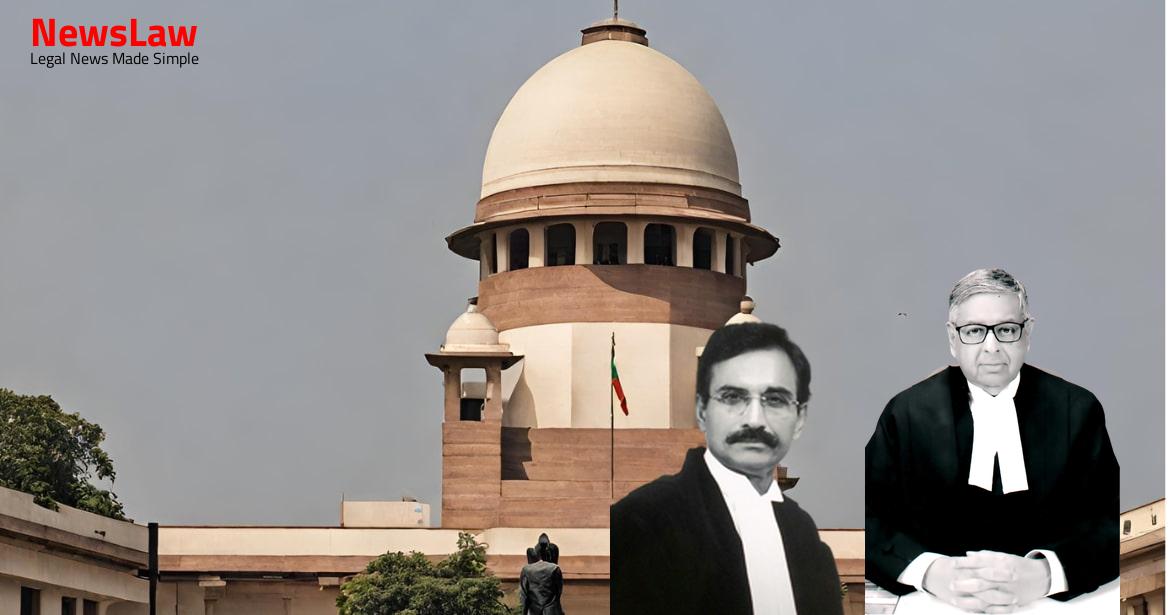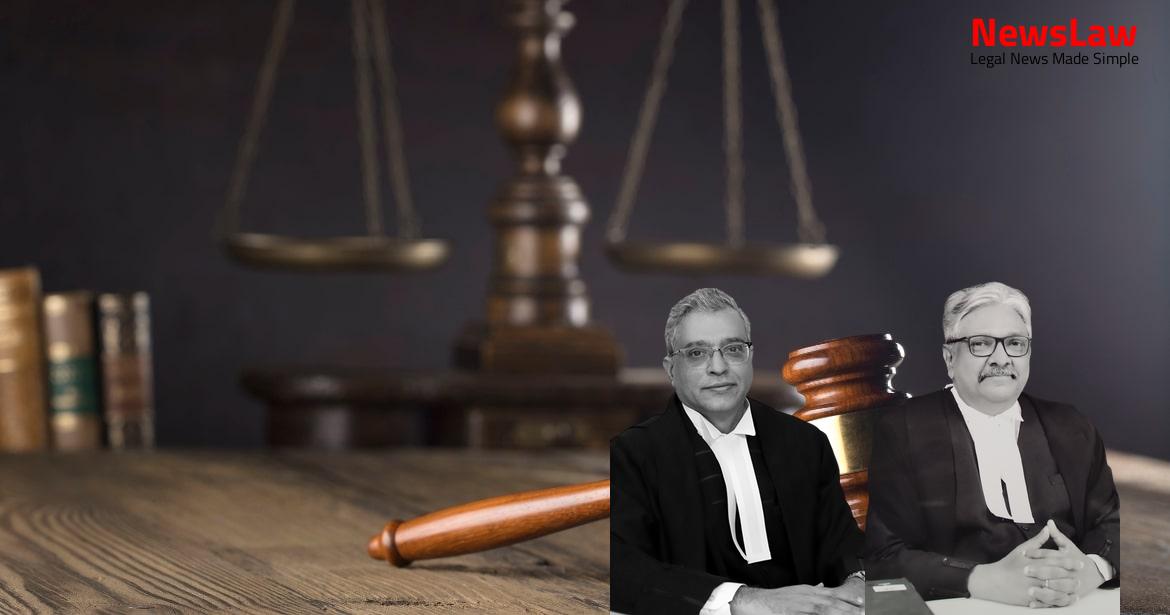In a recent landmark ruling by the Supreme Court of India, the judgment delves into the intricacies of the Limitation Act and its override in a case involving payment disputes. The case, which involved M/s. Shanti Conductors (P) Ltd., sheds light on the complexities of Section 19 and Section 14 of the Limitation Act. Stay tuned to unravel the legal nuances and implications of this significant decision.
Facts
- The petitioner paid approximately Rs.2.15 Crores in instalments to the respondent, with the last payment made on 05.03.1994.
- A money suit was filed by the petitioner in 1997 for interest on the principal amount already received.
- Various grounds were raised in the review petitions which need to be considered separately.
- Questions were framed in the suit including whether it was barred by limitation.
- The President of India issued an Ordinance in 1992 to regulate interest on delayed payments to small scale industries.
- A Writ Petition was filed in 1993 for realisation of dues, which was subsequently dismissed in 1997.
- The trial court decreed the money suit in 2000 for a specific amount with future interest.
- Review petitions have been filed against the common judgment of the Civil Appeals, which were dismissed in 2019.
- RFA No.66 of 2000 was filed by the petitioner against the trial court’s judgment.
- It was concluded that the suit by M/s. Shanti Conductors (P) Ltd. was barred by time.
- The Assam State Electricity Board issued supply orders to the petitioner in 1992 for aluminium electrical conductors.
- High Court did not hold in favour of the petitioner regarding entitlement to the benefit of Act, 1993
- Accepted petitioner’s submission that plaintiffs can claim costs under different sections and in equity
- Civil appeal filed by M/s. Shanti Conductors (P) Ltd against the Division Bench judgment
- Two judgments delivered by two Hon’ble Judges with divergent opinions reported in (2016) 16 SCC Page 13
- Matter referred to Three Judge Bench which dismissed the appeals in 2019
- Respondent filed Special Leave Petition later converted to Civil Appeal No.2351 of 2003
- Civil Appeal No.2351 of 2003 along with another appeal were dismissed on 10.07.2012
- Division Bench of the High Court allowed RFA No.66 of 2000 filed by the respondents and dismissed the suit of the petitioner
- Division Bench made a reference to the Full Bench for answering three points raised by the counsel for the appellant
- Three-Judge Bench answered the reference on 05.03.2002
Also Read: Interpretation of Lease Agreement and Compulsory Registration
Arguments
- The petitioner argues that there is an error on the face of the record in the observations made by the Court.
- They claim that the last supply completed on 04.10.1993, and a fresh period of limitation should be available due to payment made on 05.03.1994.
- It is contended that the Act of 1993 overrides the Limitation Act and hence the provisions of the Limitation Act do not apply.
- The petitioner is of the view that they are entitled to the benefit of Section 19 of the Limitation Act and Section 14 of the Limitation Act.
- The argument about the maintainability of the Civil Appeal No. 8445 of 2016 has been raised as well.
- The petitioner also asserts that the association filing the writ petition is a different entity from the petitioner in the suit.
- Learned senior counsel for the parties have placed reliance on various judgments of the Court.
- Pleadings and proof of acknowledgment of payment are essential for benefiting from Section 19 of the Limitation Act.
Also Read: Legal Interpretation in Light of Section 148 of NI Act: Revisiting Appellants’ Case
Analysis
- The High Court held that the acceptance of the post-dated cheque on February 4, 1954 was conditional and not unconditional.
- The payment made by cheque on February 25, 1954 was considered conditional and the actual payment date would be the date it could be presented and honored.
- The plaintiff did not plead for the benefit of Section 19 of the Limitation Act in the plaint, therefore not entitled to it.
- The judgment dated 23.01.2019 concluded that the suit was barred by time.
- The Court emphasized the importance of proof of payment in a particular way to extend the period of limitation under Section 20 of the Limitation Act.
- The Proviso of Order VII Rule 6 could not exempt the plaintiff from the law of limitation as pleaded in the plaint that the Act, 1993 has overriding effect.
- The judgment reiterated that a fresh period of limitation starts with a payment, and in this case, it was from February 25, 1954.
- The Review Petition seeking to claim benefit under Section 19 and Section 14 of the Limitation Act was dismissed as it was not warranted.
- The Court reaffirmed that an acknowledgment must be in written or signed form as proof of payment, and oral testimony is excluded.
- The judgment also highlighted the importance of factual details and evidence in determining the payment date for limitation purposes.
- The suit was instituted after the expiration of the period prescribed by the law of limitation.
- The plaint should show the ground upon which exemption from the law of limitation is claimed.
- Section 19 of the Limitation Act provides for a fresh period of limitation based on certain facts like payment on account of debt or interest on legacy.
- The payment must be made before the expiration of the prescribed period by the person liable to pay the debt or legacy, or by an authorized agent.
- A fresh period of limitation shall be computed from the time when the payment was made.
- An acknowledgment of the payment must appear in the handwriting of the person making the payment.
- Mortgaged land in possession of the mortgagee is deemed to be a payment.
- The receipt of the rent or produce of such land shall be deemed as a payment.
- The term ‘debt’ does not include money payable under a decree or order of a court.
- To attract the operation of Section 20 of the Limitation Act, two conditions are essential: the payment must be made within the prescribed period of limitation, and it must be acknowledged in writing by the payer.
- For the applicability of Section 20 of the Limitation Act, two essential conditions must be met.
- In Parsion Devi Vs. Sumitri Devi, it was held that a judgment may be open to review if there is a mistake or an error apparent on the face of the record.
- To claim exemption under Section 20 of the Limitation Act, the plaintiff must plead and prove payment or acknowledgment of payment within the prescribed period.
- The date on which a post-dated cheque bears, subject to payment by the bank, is considered as the start of a fresh period of limitation.
- The proviso to Section 20 is considered complied with if the post-dated cheque itself serves as an acknowledgment of payment in the payer’s handwriting.
- The maintainability of the appeal was specifically considered and answered in paragraphs 80, 81, and 82 of the impugned judgment.
- Civil Appeal No. 8445 of 2016 was against the judgment of the High Court dated 19.03.2013, where the review petition was partly allowed by allowing interest at 9% p.a.
- The submission made by Shri Patil was that since the appeal was against the High Court’s judgment, it was maintainable even though there was a withdrawal of an earlier appeal by the petitioner.
Also Read: Enhancing Compensation and Modifying Sentences: A Legal Analysis
Decision
- The High Court granted interest at the rate of 9% per annum.
- Civil Appeal No. 8445 of 2016 was filed against the review judgment, but not against the 9% interest granted to the petitioner.
- Review judgment did not grant interest under Act, 1993 as the petitioner was found not entitled to benefit under the Act.
- The High Court did not accept the review ground on which liberty was sought.
- Appeal maintainability was found against the petitioner in the judgment dated 23.01.2019.
- The appellants were issued two supply orders on 17.02.1992 and 17.03.1992.
- A suit seeking decree with interest was filed on 16.05.1994, which the trial court decreed.
- Assam Electricity Board filed an appeal, which was allowed by the High Court stating that the bills raised were cleared before the commencement of Act, 1993.
- A Special leave petition against the High Court judgment was permitted to be withdrawn.
- After the withdrawal of the special leave petition, a review petition was filed and partly allowed on 19.03.2013.
- Review Petition (C) Nos. 786-787 of 2019, Review Petition (C) No. 789 of 2019, and Review Petition (C) No. 788 of 2019 are dismissed.
Case Title: M/S SHANTI CONDUCTORS (P) LTD Vs. ASSAM STATE ELECTRICITY BOARD
Case Number: R.P.(C) No.-000786-000787 / 2019



